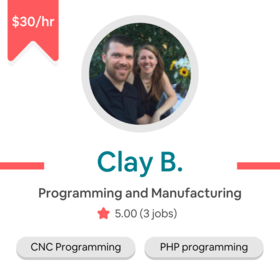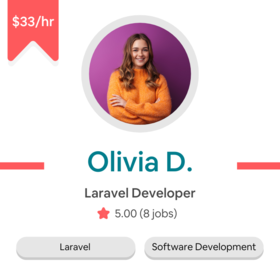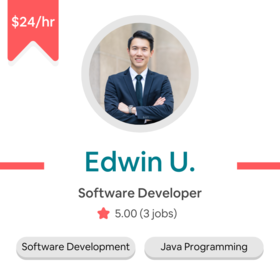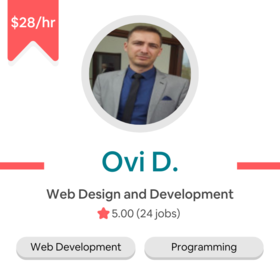













There are fewer iOS app developers than Android app developers, but that doesn't necessarily mean they're rare. Independent and freelance app developers might have had some reservations about iOS developments. For instance, every iOS developer needs to use a Mac computer to build an app—and Macs are almost always more expensive than their Windows-based equivalents. Furthermore, the submission comes with a stringent review process.
Developing an app for Android is generally more practical, and Android also dominates the mobile OS market share. Once again, this is not to say iOS app development is far behind; it's just that Apple's App Store has different standards from Google Play. In February 2024 alone, approximately 37,000 apps were released to the App Store—that's more than 1,000 per day. If this isn't an indication of a thriving development ecosystem, we don't know what is.
While the App Store has a higher entry barrier than Google Play, the iOS app optimization task is a lot more straightforward than an Android app. Android is open-source, and although it's developed mostly by Google, phone manufacturers are allowed to modify the operating system as they see fit. The result is a mixture of heavily modified versions of Android in the market. On the other hand, iOS is owned by Apple and installed only on iPhones. No other phone makers can use or modify the operating system. So, if you're developing an iOS app, you need to focus only on one brand of devices: Apple.
We know you only want to hire a competent developer who can build an iOS app and get it approved on the App Store. However, this is far too generic of a job qualification. Cad Crowd can help you write a detailed recruitment requirement to help filter potential candidates, leaving only a handful of shortlisted talents with skill sets that precisely match the role. For iOS app developers, the bare minimum of their skills are as follows.
iOS currently has two programming languages: Objective-C and Swift. Before the introduction of Swift in 2014, apps for Apple products were developed mainly using Objective-C. A lot of developers still maintain their legacy apps in Objective-C, but there really is no good reason not to incorporate them into the Swift framework. Swift is now the official programming language for iOS. It's faster, more secure, and relatively easier to learn and use, thanks to simpler syntax, even for new developers. It also shares a runtime with the predecessor so that legacy apps can be updated without much of a hassle.
Developers should know their way around Xcode, the integrated development environment used to build software and apps for Apple's line of proprietary operating systems, including iOS, iPadOS, macOS, watchOS, visionOS, and tvOS. This is the tool for developers to write, compile, and debug applications before submitting them to the App Store. It supports Swift and Objective-C as well as a range of other programming languages such as C++, Java, Python, C, AppleScript, and Ruby.
Without a working knowledge of JSON, iOS developers have no idea how data transmission happens over networks. They also have to know about Core Data, which is basically the connecting layer that allows the pretty bits at the front end of an iOS app to interact with complex data and business logic at the back end.
Apart from those three aforementioned points, the rest of the developers' essential skills are mainly concerned with the design approach, which is just about the same whether they're building Android or iOS apps. One of the most important design skills is spatial reasoning, or the ability to see an app from users' perspectives. When designing an app, the developers must be able to put themselves in users' positions and basically predict how users will interact with it.
Every interaction happens on two fronts: the interface (UI), or the overall appearance of the app on the iPhone screen, and the usability (UX), or the experience of using the app. A good-looking app gives a great first impression, but it means nothing if it doesn’t deliver a pleasant user experience.
For instance, a map app that has great-looking details and a user-friendly layout is so attractive that people will download it in an instant - this is UI well done; however, it turns out that setting up custom routes with multiple stops is too cumbersome, and that information about specific points of interest are unavailable - this is UX poorly executed. In another case, an alternative map app offers loads of options and usability features, but the layout doesn't fall in line with the iOS' overall color theme. Both apps are usable, but they're not really optimized for iPhones.
An app can be anything from a simple audio player to complex video editing tools. Competent iOS app developers have the skills and general understanding of good design to blend beautiful UI and enjoyable UX without asking the device for too much processing power. In addition, developers must also consider multiple device inputs (voice control, touchscreen, gestures, on-screen keyboards, portrait, and landscape modes) and the iPhone's internal accelerometer and gyroscope when relevant.
Equally important is the ability to utilize App Store Optimization. Getting Apple's approval is only the first step toward success. Developers must be able to use the available analytics, such as performance and user data, to plan for better app retention and user engagement. There is no one-method-fits-all when it comes to app discoverability. Your developers may have to collaborate with marketing professionals to devise an effective strategy to increase exposure.
If this is the first time you have an iOS development project, we must tell you that even the most experienced developers don’t always get it right on the first try. Just because there are mistakes and bugs in a few places doesn’t mean the developers you hire are incompetent. Every app must be tested, revised, and tested again until the developers are confident that everything is in place and working as intended; this is the nature of app development.
While Cad Crowd can’t promise to deliver the perfect iOS app developer who writes flawless codes the first time around, we can assure you that our candidates have the right qualifications and proven track records for the role you offer.
Once an app is ready, the developers will have to test it before submitting it to Apple for approval. The very first testing is done in the Xcode. The app will be exposed to some theoretical usage scenarios that simulate real-life usage. Your developers devise multiple procedures to see how the UI interaction happens. Although everything depends automatically, the developers have to write proper and complete test procedures to evaluate every aspect of the interaction. In most cases, the automated testing is more thorough than what a typical human user can produce. That being said, real-world testing is still necessary.
To test the app with real users, the developers must sideload the apps to an actual iPhone or two (more is better) using the TestFlight app. Up to 100 developers are allowed to test the app on 30 different devices each; one thing to keep in mind is that all the testers must be members of the Apple Development Program. This is primarily internal testing, but those developers can send invitations to 10,000 external testers to install the app on their devices. The good thing with iOS app development is that you only need to test it on Apple's iPhones and nothing else. It's best to test the app on multiple iPhones running different generations of iOS for optimum results.
Whether you need experienced or entry-level iOS app developers, Cad Crowd can connect you with the right talents to get your project going right away. We have a massive talent database of hundreds of professional iOS developers of all levels, US-based and beyond, eager to showcase their app-building skills to the world and take the next major step in their careers. Many of them are active candidates, including independent developers and freelancers, each with a portfolio to boot. Reach out to Cad Crowd to get your free quote, and we'll schedule an immediate discussion to define the job requirements, MVP, expected turnaround time, and every little detail you might find relevant to your app development project.
Ready to bring your iOS app idea to life? Don't wait! Leverage the expertise of our seasoned iOS app developers at Cad Crowd. Whether you're building a new application or improving an existing one, our network of professionals is eager to help you achieve your goals. Contact us today to find the right developer for your project and take a significant step towards your mobile app success!


